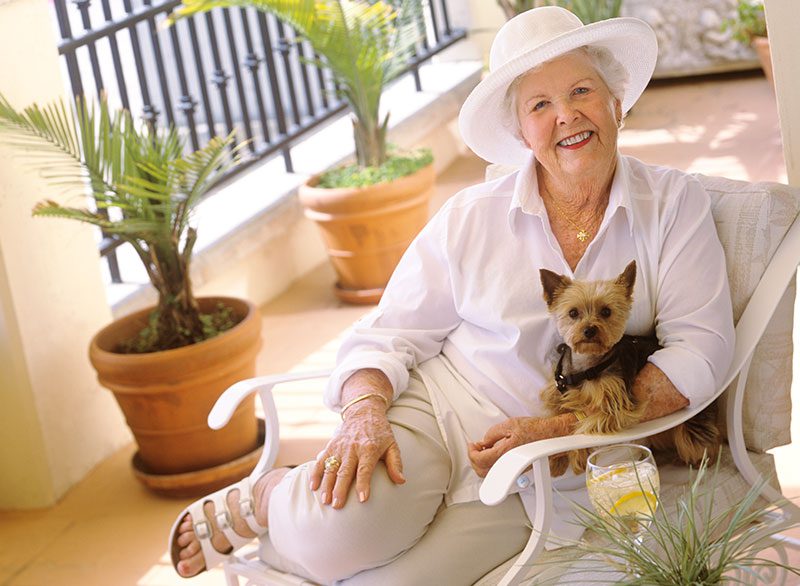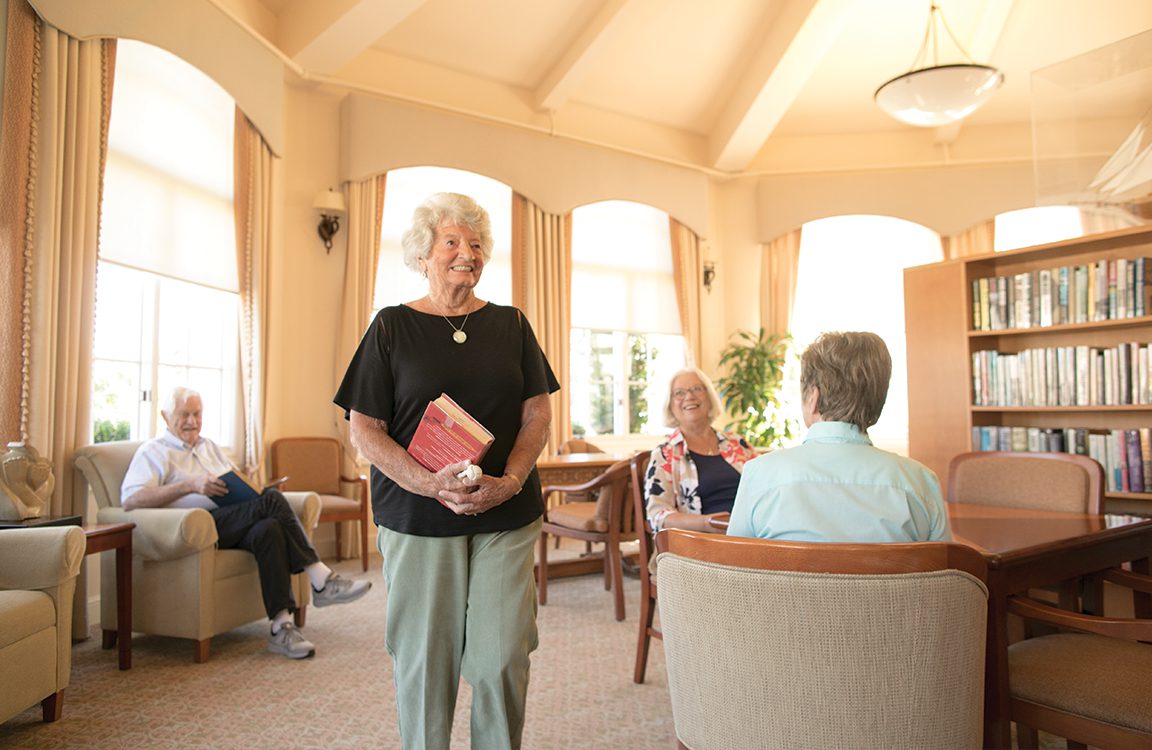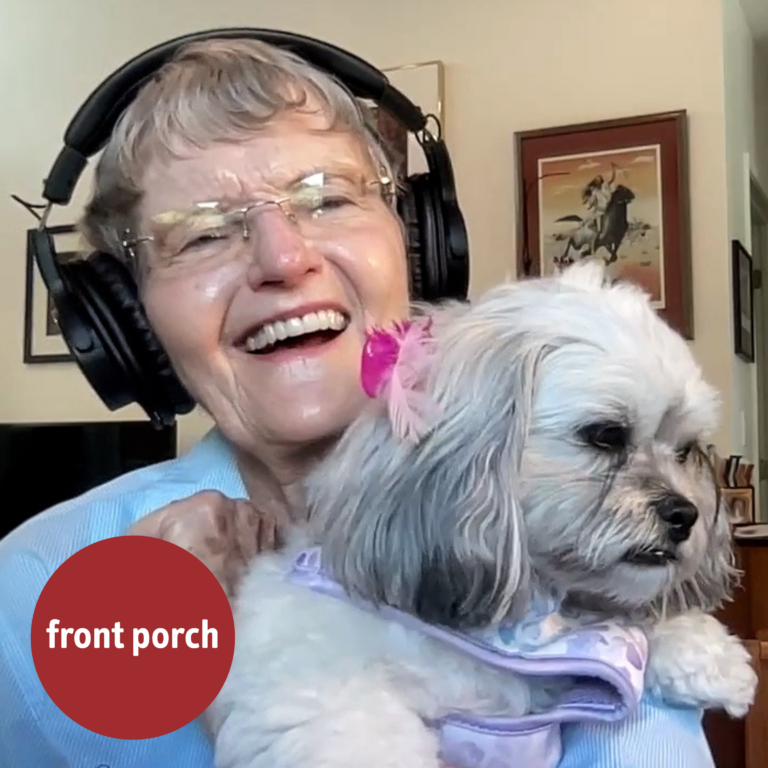February 19, 2025
Navigating the Challenges of Vision and Hearing Loss: Practical Tips for Seniors in Carlsbad, CA

Understanding Vision and Hearing Loss in Seniors
Changes in vision and hearing are common with age and can have a significant impact on daily life. Vision loss can range from mild impairment to complete blindness, while hearing loss can vary from a slight decrease in sensitivity to profound deafness.
Vision loss in seniors can result from various conditions, such as cataracts, glaucoma, age-related macular degeneration and diabetic retinopathy. Hearing loss can result from things like exposure to loud noises, genetics, aging, certain medications or medical conditions.
The Effect of Vision and Hearing Loss on Daily Life
Vision and hearing loss can profoundly affect a senior’s quality of life and independence. Even mild impairments can make everyday tasks, such as reading, cooking, driving and socializing, more challenging. These sensory deficits can also increase the risk of accidents, social isolation and depression.
For seniors living in Carlsbad, CA, with vision and hearing loss, navigating the beautiful coastal landscapes and participating in community activities can become more difficult. Simple pleasures, like exploring Carlsbad’s scenic beaches and cultural events may become less engaging.
Common Challenges Faced by Seniors with Vision and Hearing Loss
- Communication barriers: Difficulty understanding speech, following conversations and communicating effectively with others.
- Mobility and safety concerns: Increased risk of falls, accidents and injuries caused by impaired depth perception, peripheral vision and spatial awareness.
- Reduced independence: Reliance on others for assistance with tasks that were previously manageable, such as reading, cooking and managing finances.
- Social isolation: Withdrawal from social activities and interactions due to communication difficulties and frustration or challenges in social engagement.
- Cognitive decline: Studies suggest that sensory loss may be linked to cognitive changes over time.
Practical Tips for Maintaining an Active Lifestyle with Vision and Hearing Loss
- Consult with healthcare professionals: A healthcare professional, such as an ophthalmologist or audiologist, can provide guidance on managing changes in vision and hearing.
- Use assistive devices: Explore and utilize assistive devices like magnifiers, large-print books, hearing aids and captioned telephones to enhance your sensory abilities and improve communication.
- Modify your environment: Make adjustments to your home and surroundings to improve accessibility, safety and comfort. This can include installing better lighting, reducing glare and minimizing background noise.
- Engage in regular exercise: Low-impact physical activities, such as walking or yoga, may help with balance and overall well-being.
- Stay socially connected: Maintain social connections by joining support groups, going to community events or participating in virtual social activities. This can help combat isolation and promote mental well-being.
- Learn new skills: Explore adaptive techniques and technologies, such as audiobooks, voice-activated devices and specialized software or apps, that can help you continue enjoying your hobbies and interests.
- Practice self-care: Self-care strategies, like relaxation techniques and a nutritious diet, can support overall well-being.

Making Your Home Safe and Accessible: A Guide for Seniors With Vision and Hearing Loss
Lighting and Contrast:
- Install bright, even lighting throughout your home, especially in areas like stairways, bathrooms and kitchens.
- Use contrasting colors for floors, walls and furniture to improve visual cues and depth perception.
- Install motion-sensor lights or nightlights to illuminate pathways and prevent falls.
Flooring and Surfaces:
- Clear loose rugs or secure them with non-slip backing to prevent tripping hazards.
- Install non-slip flooring or apply anti-slip treatments to smooth surfaces.
- Ensure surfaces are free from clutter and obstructions.
Safety Features:
- Put grab bars and handrails in bathrooms, stairways and other areas where support is needed.
- Set up a walk-in shower or tub with a low threshold for easier access.
- Use audible and visual smoke detectors and carbon monoxide alarms.
Accessibility Modifications:
- Widen doorways and remove thresholds to accommodate mobility aids like wheelchairs or walkers.
- Install ramps or stair lifts if needed for easier access to different levels of your home.
- Consider relocating frequently used items to accessible heights and locations.
Communication Aids:
- Install visual and auditory alert systems for doorbells, phones and emergency alarms, such as flashing lights or vibrating devices.
- Use amplified telephones or captioned telephone services for improved communication.
Empowering Seniors With Vision and Hearing Loss to Live an Engaged and Independent Life
While vision and hearing loss can present challenges, it’s important to remember that these conditions do not limit your potential for a fulfilling and independent life. By embracing a positive mindset, seeking support and utilizing available resources, you can continue to thrive and pursue your passions. Here are some practical strategies for seniors with vision and hearing loss:
- Educate yourself: Learn about your condition, available treatments and coping strategies. Knowledge can help you make informed decisions and advocate for your needs.
- Seek support: Engage with others who share similar experiences through support groups, online forums or local organizations. This can provide a sense of community and valuable insights.
- Advocate for your rights: Be aware of your rights and advocate for accessibility and accommodations in public spaces, workplaces and community settings.
- Embrace adaptive strategies: Explore adaptive techniques and assistive technologies that can help you maintain independence and continue pursuing your interests and hobbies.
- Focus on your abilities: Celebrate your strengths and abilities rather than dwelling on limitations. Engage in activities that bring you fulfillment.
- Maintain a positive attitude: Even if it’s natural to experience emotions like frustration or sadness, seeking support and staying engaged can help manage these feelings.
- Seek professional help: If you’re struggling with emotional or practical challenges related to your vision or hearing loss, don’t hesitate to seek assistance from healthcare professionals, counselors or therapists.
If you or your loved one is seeking an active senior living in Carlsbad, CA, consider Carlsbad by the Sea. We understand the unique challenges faced by seniors with vision and hearing loss. We offer accommodations such as accessible living spaces, assistive technology in gathering spaces and exploring personalized support for residents with vision and hearing loss. Contact us today at (760) 720-4580 to learn how we can support your journey toward a fulfilling and enriching retirement experience in the beautiful coastal city of Carlsbad, CA.
Read Our Front Porch Blogs

Front Porch Podcast – Episode 8: Belonging: The Heart of Community—with Arthur Liggins & Candace Young-Schult

Front Porch Podcast – Episode 7: Commander Beth Coye: A Warrior for Equality

